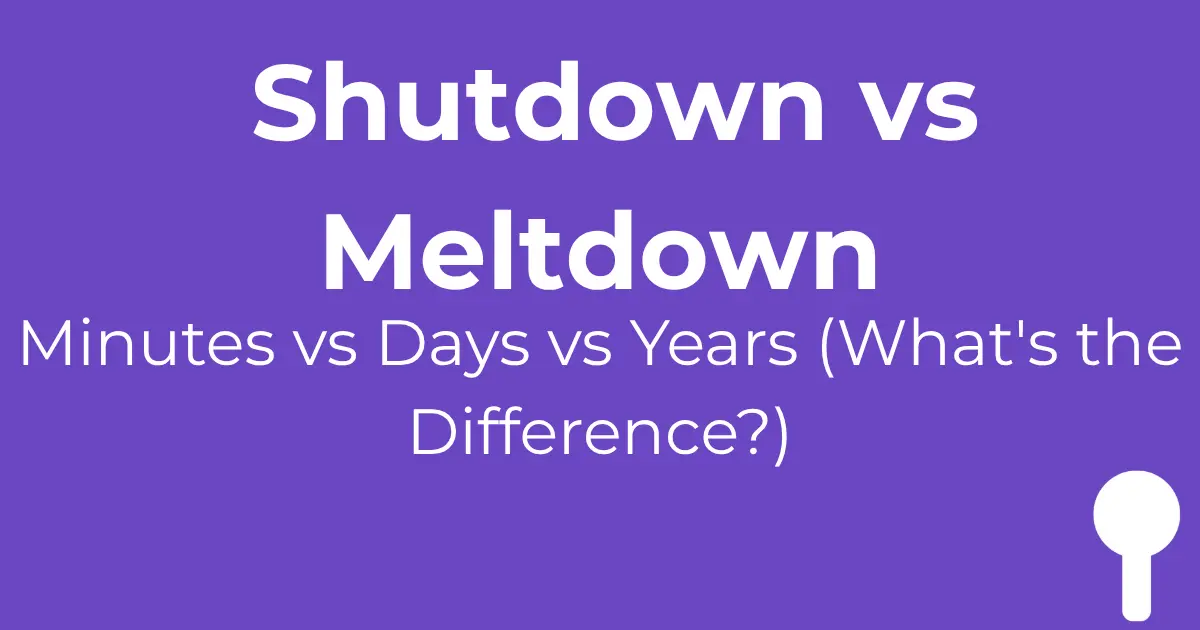
Shutdown vs. Meltdown vs. Burnout: How I Tell Them Apart
People use these words interchangeably. They're not the same.
I've experienced all three. Here's what each one actually looks like.
This is how I tell them apart in my body: by how long it lasts and how ‘online’ my brain feels.
My Meltdown
Family dinner. Multiple people talking at once. Already overwhelming.
My mom strongly encouraged us all to take a photo together. Smiling is very uncomfortable. I was already masking during dinner.
The sensory overload from multiple conversations, bright lights, and being forced to smile for photos pushed me past my limit. The bathroom was the only place I could escape the input.
I quickly rushed to the bathroom and started crying. Stayed there for 20 minutes so I wouldn't be suspicious. When I came out, I didn't want to talk to anyone for the rest of the day. Just wanted to eat my food and go home.
For me: meltdown = minutes. Sudden. My nervous system spilling over.
My Shutdown
My mom was barging into my room when I was upset due to her shouting at me. I shut the door but she was yelling at me to open it. I eventually did and calmed things down slightly.
That same day, I couldn't talk. I stayed in bed for the rest of the day. My executive function was completely gone—too cognitively exhausted to even make something to eat.
For me: shutdown = days. Lingering. My system goes offline.
My Burnout
I didn’t notice at first. It’s been ongoing for 5+ years. Masking is harder. Talking is harder. My social skills feel degraded. Even drawing feels harder.
Tasks I was able to do normally are much harder now.
Everything just feels HARDER.
For me: burnout = years. Baseline drops. Everything feels harder.
The Key Difference
Meltdown: Minutes. Sudden and spontaneous.
Shutdown: Days. Lingering and draining.
Burnout: Years. Extended and bothersome.
How They're Connected
All three are my nervous system's response to overload—just at different timescales. Meltdowns happen when I hit my sensory limit suddenly. Shutdowns happen when I push through multiple meltdown-level days. Burnout happens when I push through months of shutdowns without enough recovery time.
In my case, they connect like this: overload → meltdown, repeated overload → shutdown, and months of shutdown-level living → burnout.
What Actually Helps
For Meltdown: When I’m melting down, I reduce input immediately. Don't make eye contact. Go to my room and sit in silence. Sitting under my bed covers reduces the bright lights in my room, which makes it easier to calm down.
For Shutdown: When I’m shutdown, I need days with no demands No small talk or friend meetups. Just time alone to recover.
For Burnout: When I’m in burnout, I need months of lower demand. It's Impossible to cut out everything due to chores and family demands, but I minimize what I can.
How I Learned the Difference
Tracking on paper showed me the patterns. Meltdowns = spikes. Shutdowns = drops. Burnout = baseline never recovers.
I'm Omari, a 23-year-old autistic adult who's been managing chronic burnout for 5+ years while working warehouse shifts.
This is why I built Spoons. To see the difference. To catch shutdowns before they happen. To know when I'm sliding into burnout.
Launching April 2026. getspoons.app - One email when it's ready. No spam.
— Omari
Note: I'm sharing my personal experience as an autistic adult, not medical advice. If you're experiencing severe burnout or crisis, please consult a healthcare provider familiar with autism.
